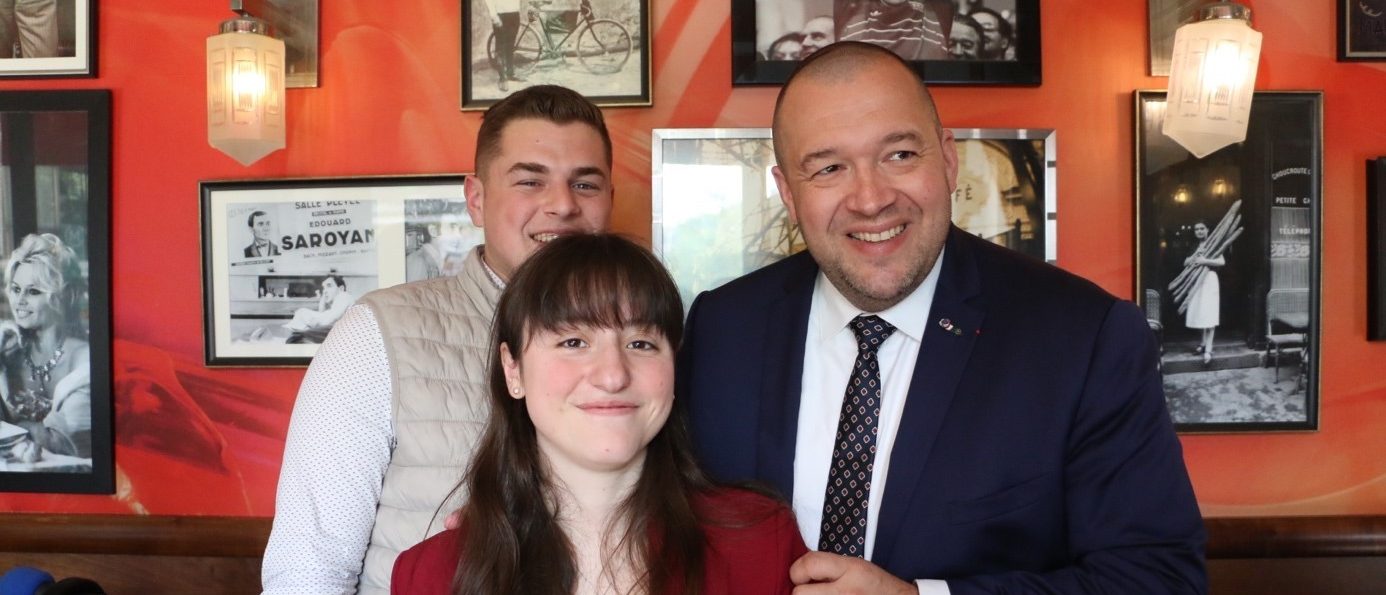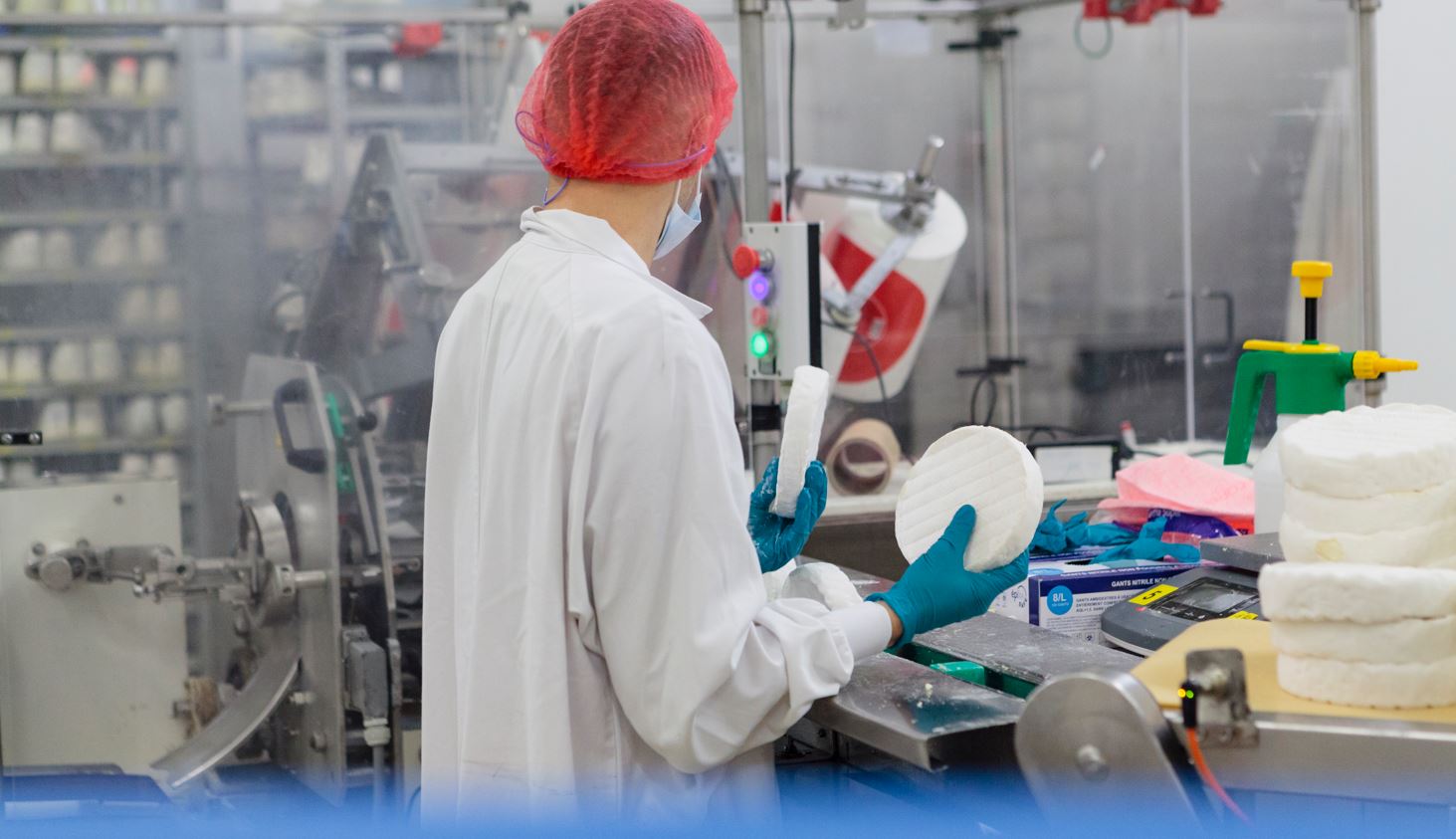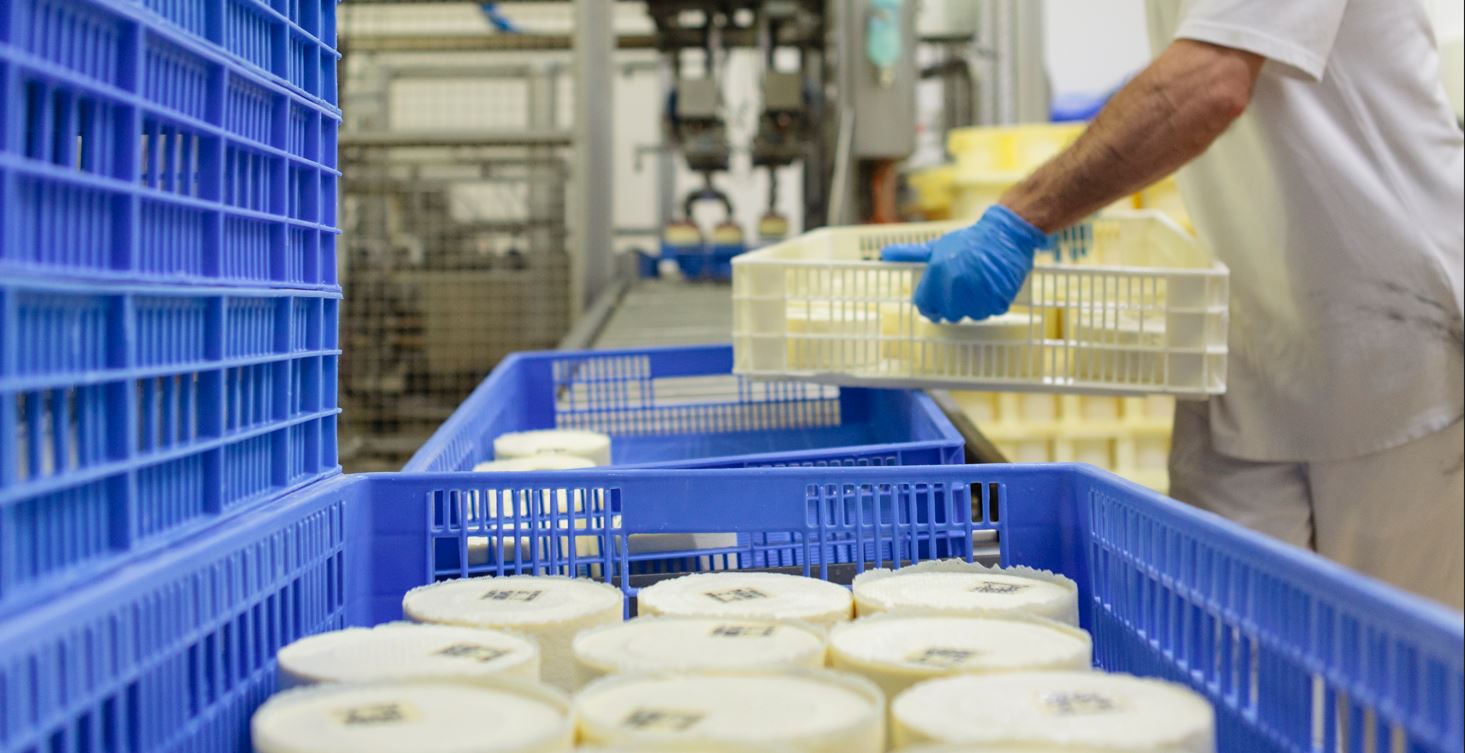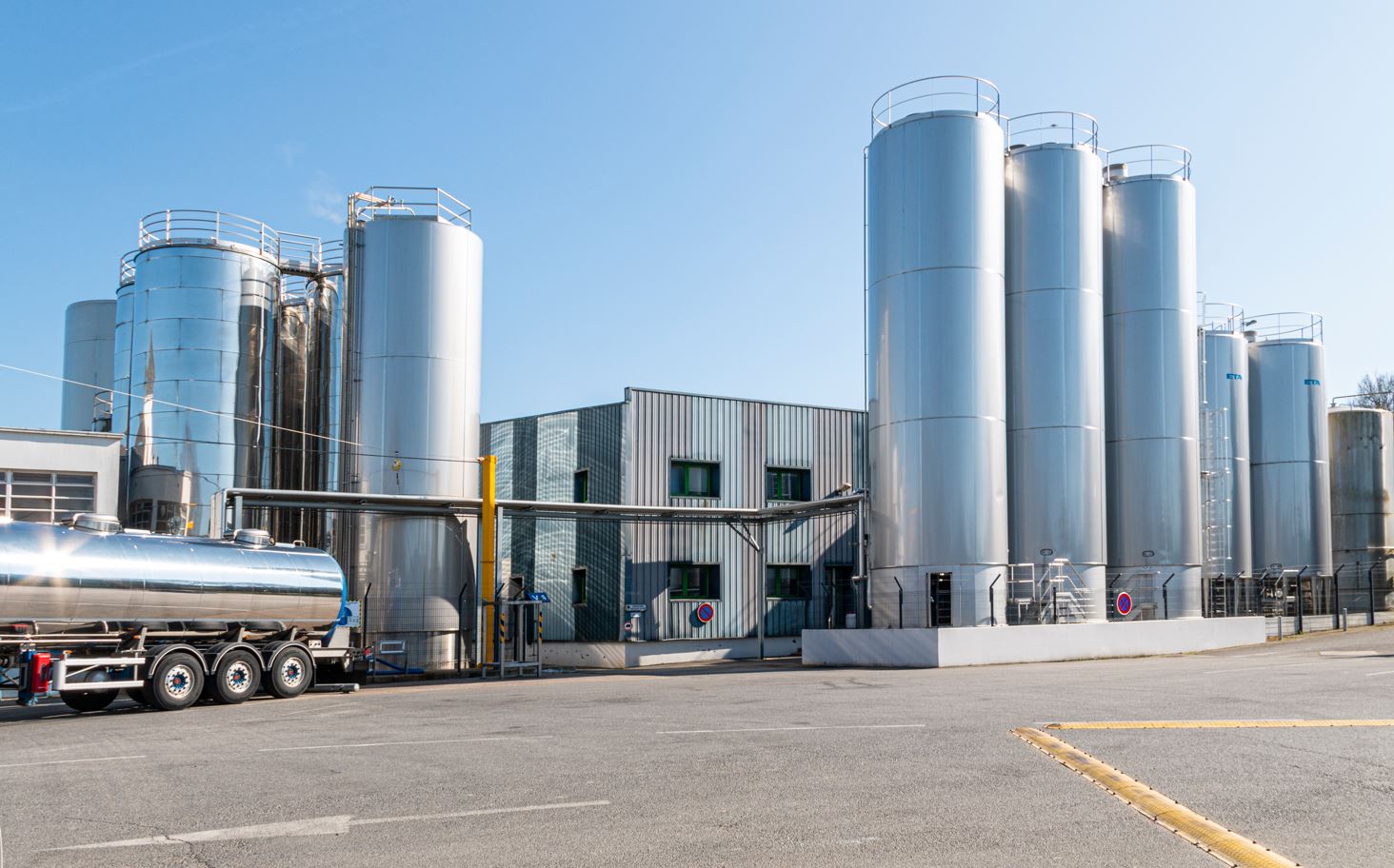
Guillaume Gomez: “Young people are the future of dairy!”
In this the latest episode of the France Terre de Lait podcast, we focus on the next generations coming through the dairy sector ranks. To learn more about the exciting career opportunities in dairy, Deborah Pham, accompanied by French gastronomy Ambassador Guillaume Gomez, interviewed Louis and Gabrielle from the Franche-Comté region, who have set their sights on careers in dairy producing and processing respectively. They share their backgrounds, their perceptions of the profession and their vision for the future.As is the case for agriculture in general, the dairy sector currently faces the challenge of depleting resources, including water, land, and even workers. One in two dairy producers is unable find a successor to assure the long-term future of their farm, while 15% of positions in dairy companies remain unfilled. Consequently, the dairy sector must grapple with the major challenge of workforce renewal and making jobs in the dairy profession more attractive to young people. Louis and Gabrielle, both students in the sector, share their views.
Louis: dairy farming is a family passion, but that’s not all!
We often hear that farming is passed down from generation to generation. For Louis, it’s also a family affair. His uncle, a dairy producer in Franche-Comté, introduced him to the profession when he was very young. “From an early age, I have spent weekends and holidays on the farm with my cousins, which is why I wanted to join the sector.”
Currently studying for a national diploma in agriculture (BTS), Louis is considering several possible pathways after his studies: “I would quite like a farm of my own and set myself up as a producer, but I’m also interested in the para-agriculture sector, which helps farmers manage their work more effectively.” Through his studies, he continues to evolve and gradually define his career path.
So what’s so exciting about farming? Improving overall herd performance, from an animal welfare perspective as well as in terms of the quality of milk and resulting dairy products. “Our cow’s milk is used to produce Comté, a cheese recognised for its quality both in France and abroad – it’s hugely motivating, a real source of pride!”
Currently studying for a national diploma in agriculture (BTS), Louis is considering several possible pathways after his studies: “I would quite like a farm of my own and set myself up as a producer, but I’m also interested in the para-agriculture sector, which helps farmers manage their work more effectively.” Through his studies, he continues to evolve and gradually define his career path.
So what’s so exciting about farming? Improving overall herd performance, from an animal welfare perspective as well as in terms of the quality of milk and resulting dairy products. “Our cow’s milk is used to produce Comté, a cheese recognised for its quality both in France and abroad – it’s hugely motivating, a real source of pride!”
Gabrielle: transforming a passion for dairy into a career
Though more unusual, Gabrielle’s background is just as driven. “After a baccalaureate specialising in economics and social sciences, and an uninspiring first year at university studying law, I decided to make the leap and train as a cheesemaker. It’s a first in my family, and I’ve found my vocation!”
Now taking further studies in dairy production (BTS) at the National Dairy School (ENIL) in Besançon-Mamirolle – “where men and women are represented equally” – Gabrielle is also taking courses in microbiology and industrial engineering. It’s a comprehensive study programme providing a solid understanding of the methods involved in dairy processing and laying solid foundations for her future profession. After her studies, Gabrielle wants to start her career with a traditional cheesemaker, with a view to managing her own cheese shop – and why not!
“It’s really satisfying to come face-to-face with a product you have made yourself. And the sense of pride is even greater when you know the product is destined for fine dining,” explains Gabrielle, who also appreciates the job’s lack of routine. “Even if the process is the same, we never do the same thing twice. Milk is a living material, which by its very nature, is constantly evolving.”
Now taking further studies in dairy production (BTS) at the National Dairy School (ENIL) in Besançon-Mamirolle – “where men and women are represented equally” – Gabrielle is also taking courses in microbiology and industrial engineering. It’s a comprehensive study programme providing a solid understanding of the methods involved in dairy processing and laying solid foundations for her future profession. After her studies, Gabrielle wants to start her career with a traditional cheesemaker, with a view to managing her own cheese shop – and why not!
“It’s really satisfying to come face-to-face with a product you have made yourself. And the sense of pride is even greater when you know the product is destined for fine dining,” explains Gabrielle, who also appreciates the job’s lack of routine. “Even if the process is the same, we never do the same thing twice. Milk is a living material, which by its very nature, is constantly evolving.”
Dairy sector jobs undergoing radical change
With both students, the enthusiasm for their careers in the dairy sector – “which are constantly evolving to meet the demands of future generations and the challenges of society” – is palpable. Louis confirms that the producer’s role has been transformed by modern practices, especially the introduction of services that aim to improve the work-life balance. “Young people like myself pursuing studies in agriculture need experience and can offer their services to farmers looking for people to replace them for the odd weekend or during holidays. It’s a win-win situation.”
To improve dairy farm profitability while striving for a better work-life balance, producer partnerships, which are more common among young people, play a key role. Former chef at L’Elysée, the official residence of the French President, and now Ambassador of French gastronomy, Guillaume Gomez stresses the point: “The co-operative model provides producers with a fairer remuneration framework, which is a crucial issue in the face of challenges of food sovereignty.”
From replacement services to agricultural partnerships, so many initiatives are developing in response to the major need for freedom expressed by younger generations. A further observation is that roles are less set-in-stone than previously, which opens up more growth opportunities for workers in the sector. “There is no wrong career path!” assures Guillaume Gomez. “Having the experience of another sector or career can even be an advantage for the next stage. It’s important not to think twice about switching paths if you want to. You can start out as a producer, swap to processing, then try your hand as a chef or open a small shop or business!”
The French gastronomy guru also actively encourages anyone wanting to travel to export their dairy skills and knowledge and spread the excellence of the French dairy sector in international markets.
To improve dairy farm profitability while striving for a better work-life balance, producer partnerships, which are more common among young people, play a key role. Former chef at L’Elysée, the official residence of the French President, and now Ambassador of French gastronomy, Guillaume Gomez stresses the point: “The co-operative model provides producers with a fairer remuneration framework, which is a crucial issue in the face of challenges of food sovereignty.”
From replacement services to agricultural partnerships, so many initiatives are developing in response to the major need for freedom expressed by younger generations. A further observation is that roles are less set-in-stone than previously, which opens up more growth opportunities for workers in the sector. “There is no wrong career path!” assures Guillaume Gomez. “Having the experience of another sector or career can even be an advantage for the next stage. It’s important not to think twice about switching paths if you want to. You can start out as a producer, swap to processing, then try your hand as a chef or open a small shop or business!”
The French gastronomy guru also actively encourages anyone wanting to travel to export their dairy skills and knowledge and spread the excellence of the French dairy sector in international markets.
The challenge of sustainability within the dairy sector
In addition to the transformation of working methods, the expectations of the next generations coming through the ranks focus mainly on the responsibilities of the dairy sector in relation to the environment, society and animals. Gabrielle became aware of this at school: “Water scarcity is a real concern for jobs in processing, where cleaning and hygiene practices are essential. In our line of work, we still have a long way to go in finding ways to preserve and renew this precious resource.” Sustainability is a considerable challenge, but for Louis, it’s a huge motivator: “It’s imperative for the dairy sector as a whole to continue to make progress, which is hugely motivating and pushes us to reflect and act together.”
Louis also highlights the transformation of farming practices, something he has witnessed first-hand on the family farm. “In ten years, my uncle has completely changed his way of working and has introduced more sustainable practices.”
While many initiatives are effectively implemented by French farmers to comply with environmental and health standards, Guillaume Gomez also issues a stark reminder: “For our food model to change, the entire dairy sector, from producer to end-consumer, needs to wake up to its responsibilities and modify its behaviour.” With tonnes of global food production going to waste each year, the former chef urges everyone, at their level, to take steps to combat food waste and support more sustainable food.
Louis also highlights the transformation of farming practices, something he has witnessed first-hand on the family farm. “In ten years, my uncle has completely changed his way of working and has introduced more sustainable practices.”
While many initiatives are effectively implemented by French farmers to comply with environmental and health standards, Guillaume Gomez also issues a stark reminder: “For our food model to change, the entire dairy sector, from producer to end-consumer, needs to wake up to its responsibilities and modify its behaviour.” With tonnes of global food production going to waste each year, the former chef urges everyone, at their level, to take steps to combat food waste and support more sustainable food.
Play a part in transforming the dairy sector
From consumer education to the importance of transparency and traceability, like Louis and Gabrielle, Guillaume Gomez is convinced that in order to progress, strengthening the bonds between different sections of the dairy chain – producers, processors, and also consumers, is an absolute prerequisite. Today’s methods of communication facilitate this challenge. “Social media provides a platform for producers to get their voices heard, to demonstrate their work. This promotes dialogue, sharing and at the end of the day, inspires greater confidence.”
Though rooted in ancestral know-how, dairy jobs are also decidedly modern. It’s up to each individual within the industry to bring their own vision and play their part in transforming the sector.
Louis and Gabrielle advise any young person seeking to enter the dairy sector, like themselves, to keep working on their ambition, their desire to learn and their dynamism. “On the production side, it takes agility, the ability to adapt to the everyday,” adds Louis. Meanwhile, Gabrielle encourages apprentice processors to be multi-skilled: “In these professions, to be a Jack-of-all-trades is a real advantage. You need to be familiar with manufacturing processes but also know how to operate the machinery.” Meanwhile, Guillaume Gomez underlines the culture of handing down skills and knowledge pertinent to the sector and concludes: “Continue to gain new skills, finetune your judgement when talking to people in the profession who work in areas that interest you and you’ll soon see that it can open doors. There are so many opportunities, the youth are the future of the sector!”
Though rooted in ancestral know-how, dairy jobs are also decidedly modern. It’s up to each individual within the industry to bring their own vision and play their part in transforming the sector.
Louis and Gabrielle advise any young person seeking to enter the dairy sector, like themselves, to keep working on their ambition, their desire to learn and their dynamism. “On the production side, it takes agility, the ability to adapt to the everyday,” adds Louis. Meanwhile, Gabrielle encourages apprentice processors to be multi-skilled: “In these professions, to be a Jack-of-all-trades is a real advantage. You need to be familiar with manufacturing processes but also know how to operate the machinery.” Meanwhile, Guillaume Gomez underlines the culture of handing down skills and knowledge pertinent to the sector and concludes: “Continue to gain new skills, finetune your judgement when talking to people in the profession who work in areas that interest you and you’ll soon see that it can open doors. There are so many opportunities, the youth are the future of the sector!”
undefined 30/05/2023
undefined 09/09/2024




